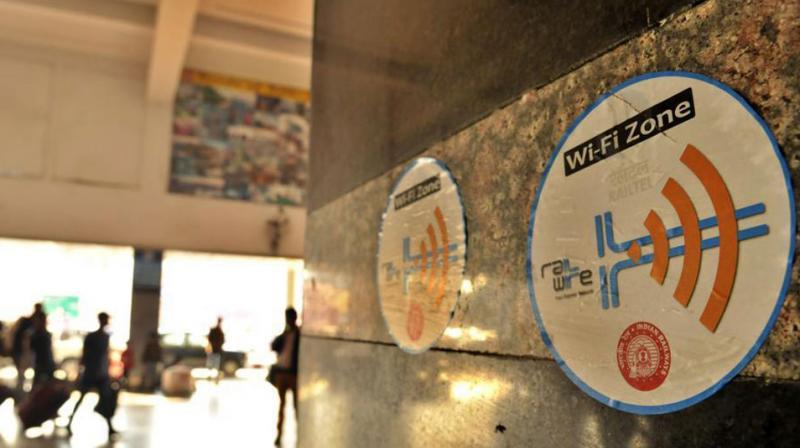Constantly connected? How you could be at-risk via seemingly innocent free Wi-Fi

It’s World Wi-Fi Day and for those of us (and there are many) who feel the need to be constantly connected to the online world, free Wi-Fi hotspots in public places seem like a great convenience. As free public Wi-Fi becomes more readily available across the country, so too does our information…for hackers!
According to Norton Wi-Fi Risk Report, 8 out of every 10 Indians can’t wait more than a few minutes before logging onto a Wi-Fi connection on arrival at a friend’s place, café, hotel, or any other location. Ritesh Chopra, Director, Norton business for India says that the problem is the excitement to upload that photo to Instagram or catch up with Facebook updates can easily lead us to forget that Wi-Fi connection may be unsecured and risky… very risky.
Unsecured public Wi-Fi connections open a window straight into your lives, a perfect opportunity for cybercriminals to exploit. Imagine, you're at your favourite coffee shop and have used your smartphone or laptop to connect to the free Wi-Fi on offer. You’re checking your social media updates, reading the news, and maybe taking a quick peek at your work emails while you're enjoying your latte. Now imagine the horror if; unknown to you, someone sitting inside or near the outlet is watching your actions and collecting every bit of data you’re accessing?
Most people assume that Wi-Fi networks in airports, hotels, and cafes have in-built security. However, this is not always the case.
When you log on to an unsecured network, hackers can easily steal your personal information as it travels across the internet, sell it on the Dark Web for profit, or even use it to siphon off money from your bank accounts. The same report suggests that 74 per cent of Indians believe their personal information is safe when using public Wi-Fi while, however, 57 per cent Indians engage in an unsafe online behaviour.
- An alarming 73 per cent of Indians are willing to do or swap something for a strong, free Wi-Fi signal including watching advertisements, access to personal emails or photographs, online dating profiles, contact lists etc.
- 48 per cent of Indians have; at some point in time, accessed a Wi-Fi connection without the owner’s permission - 18 per cent of these guessed or hacked the password
- 31 per cent of Indians admit to having used public Wi-Fi to watch adult content
- 96 per cent of Indians have potentially put their personal information (social media accounts, photos, email, and bank accounts) at risk while using public Wi-Fi
Most public Wi-Fi connections aren’t secure. Even those that require a password to log in may not necessarily be encrypted. Some wireless networks use older standards for encryption, which pose a security threat. Virtual Private Networks (VPNs) are regarded as one of the best ways to secure a Wi-Fi connection and protect personal information but unfortunately, many Indians don’t realise this protection exists.
Beware rogue Wi-Fi connections and Man-in-the-Middle Attacks!
Smartphones and laptops tend to automatically search and connect to Wi-Fi networks. Cybercriminals can use this feature to their advantage by setting up a rogue Wi-Fi hotspot which pretends to be your home network or a free public network.
Instead of connecting to your intended network, your device ends up connecting to the rogue hotspot. The cybercriminal now sits between you and the actual Wi-Fi network, viewing and capturing information from your online activities. This may include sensitive information such as details of the web pages you visit, your online banking details, your online transactions, your social media passwords, and your personal data that’s stored online.
Here’s what you can do to protect your data on public Wi-Fi networks.
- Only connect to legitimate hotspots; check with the host to confirm the network name and the connection process.
- Never leave your laptop or handheld device unattended.
- Don't allow your wireless card to automatically join the nearest network. Instead, manually select the hotspot you wish to connect to.
- Turn off file-sharing when you're using a secured hotspot and try to minimise the amount of sensitive, personal data you store on your laptops and mobile devices when connecting to public Wi-Fi. You can usually turn off file-sharing from your operating system's Network Settings menu.
- Protect your online information using a Virtual Private Network (VPN) from a trusted vendor like Norton. The VPN provides a “secure tunnel” that encrypts data being sent and received between your device and the internet.
Today, on the occasion of World Wi-Fi Day, let’s resolve to be more careful in when and how we use public Wi-Fi hotspots. Great convenience, after all, should not come at great risk.
Click on Deccan Chronicle Technology and Science for the latest news and reviews. Follow us on Facebook, Twitter.

